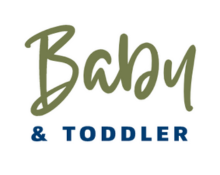
It’s not uncommon for a breastfed baby to initially refuse a bottle, especially if they are not used to it. Here are some tips that may help if your breastfed baby is refusing a bottle:
Introduce the bottle early: It can be helpful to introduce the bottle to your baby early on, ideally around 4-6 weeks old, when they are still open to accepting different feeding methods.
Have someone else offer the bottle: Sometimes, babies are more willing to take a bottle from someone other than their primary caregiver. Have someone else, such as your partner or a trusted family member, try offering the bottle while you are not in the room. This can help reduce any association with breastfeeding and make the bottle more appealing.
Experiment with different bottle nipples: Babies have different preferences when it comes to bottle nipples. Try different types, sizes, and shapes of bottle nipples to see if your baby shows a preference for one. Some nipples are designed to mimic the feel and flow of breastfeeding, which may help with the transition.
Warm the nipple and breast milk: Warm the bottle nipple slightly by running it under warm water before offering it to your baby. Also, make sure the breast milk is warmed to body temperature, as babies may prefer milk that is closer in temperature to breast milk.
Try paced feeding: Use the paced feeding technique, which mimics the slower flow and rhythm of breastfeeding. Hold the bottle in a more upright position, pause frequently during the feeding, and allow your baby to take breaks. This can help prevent your baby from becoming overwhelmed and make the bottle feeding experience more similar to breastfeeding.
Be patient and persistent: It may take some time for your baby to adjust to the bottle. Be patient and keep offering the bottle regularly. Consistency is key, so try to offer the bottle at the same times each day.
Seek support: If you’re having difficulties, consider reaching out to a lactation consultant or breastfeeding support group. They can provide personalized guidance and suggestions based on your baby’s specific needs.
Remember, every baby is different, and it may take some trial and error to find the approach that works best for your baby. Be patient, keep offering the bottle, and trust that with time, your baby will eventually accept it.
